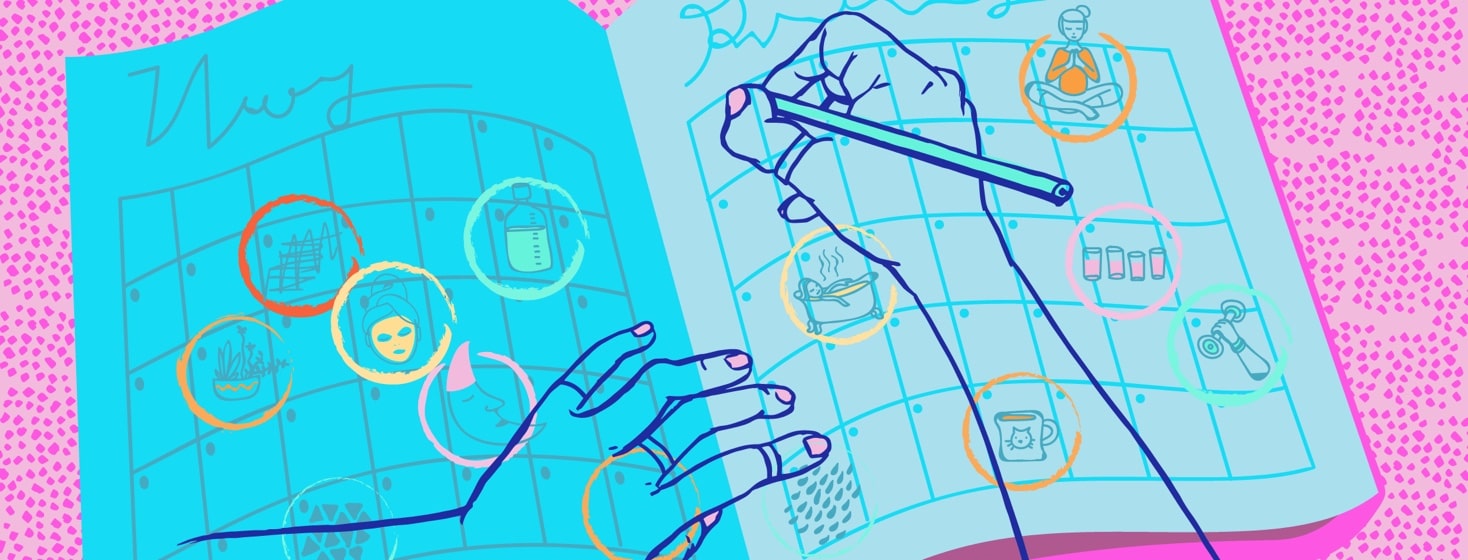What Is A “Normal” Period?
Before my endo diagnosis, I had painful periods. They were often accompanied by nausea, digestive distress, and fatigue. I actually started off getting “normal” periods in my teenage years, but by the times I reached my twenties, the symptoms were intense.
I didn't know that something was wrong
Because they grew gradually over the years, I didn’t realize something was off. I just thought I was experiencing the discomforts and cramps of menstruation that everyone else complains about. Mine were no different, right? Even when I got to the point of nearly passing out, I still was in the dark about endometriosis. I truly didn’t think of it as something of concern.
I was relatively in tune with my body, and kind of prided myself for having a high tolerance of pain. I just thought I needed to "suck it up". To top it off, I didn’t like talking about my period in general, let alone talking about how miserable I felt.
But endo symptoms are NOT normal
It wasn’t until it came up in conversation in a doctor’s appointment that I started to understand something was definitely out of the norm.
We pursued some tests, a laparoscopy, and ultimately a diagnosis of endometriosis.
I remember my periods after the laparoscopy felt like a breeze. They weren’t necessarily my peak performing days, but I certainly felt like I could function normally throughout the day.
Lessons learned
This experience taught me so much about the value of investing time in self-care, the importance of communication with my physician, and the freedom of good health.
Create time for self-care
We know there’s a link between stress and endometriosis, yet in the midst of a busy lifestyle, self-care can feel indulgent and sometimes even a little selfish.
Self-care doesn’t need to be an expensive day at a spa, however. You could take a bath at the end of your day. You could practice relaxing breathing techniques at any point throughout your day. The key is to identify something that you enjoy and can be consistent in practicing.
For me, I know I need to schedule it on my calendar or my to-do list or it won’t get done. Schedule it in your day and treat it like a nonnegotiable meeting.
Talk to your doctor
We know that we have such a short period of time with our physicians these days, that it’s easy for the time to be up before you even think about what you want to discuss.
This is why it’s important to prep for your appointment and be willing to share details with your physician – even about topics you’d rather avoid. They can help to troubleshoot any obstacles and more importantly identify when something is out of the norm.
To facilitate a discussion like this, finding the right doctor is key. Find a doctor that not only is within network and has good reviews from other patients, but more importantly find someone within whom you can have a good rapport.
You need to have a level of trust and comfort with the physician and someone who respects your role as the patient as well.
Enjoy the freedom of health
Last, but certainly not least, when you experience the freedom of good health, enjoy it! A body in motion stays in motion.

Join the conversation